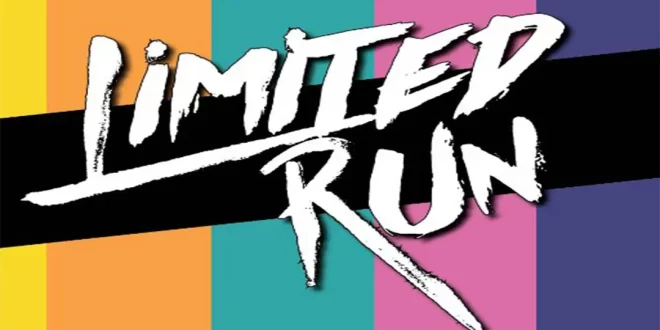Limited Run Games: A Beacon of Hope in a Disc-less Future?
As we stand on the precipice of a new era in gaming, one where the gentle whir of optical drives could become a thing of the past, it’s hard not to feel a twinge of nostalgia—and perhaps a bit of concern. The whispers in the industry suggest that the next PlayStation and Xbox might abandon physical media altogether, a move that would follow a trend towards a purely digital gaming landscape.
This leaves us with Nintendo, the bastion of cartridge-based gaming, but even the Big N may one day join its peers in forgoing physical releases. If we arrive at a point where none of these consoles feature optical drives, the very concept of buying a physical game for these systems ceases to exist. So, where does that leave us? PCs? Maybe. But there’s another player in the game, one that could preserve the tangibility of gaming: Limited Run Games. A while back I was lucky enough to have an interview with them.
The Case for Physical Media
Before diving into Limited Run Games’ potential role, let’s talk about why physical media matters. For many, collecting game boxes, cartridges, and discs is more than a hobby—it’s a passion. There’s a sense of ownership and permanence that comes with physical media, a feeling that’s hard to replicate with digital downloads.
Physical games can be lent to friends, resold, or kept as collectibles. They don’t rely on servers that can be shut down or on a digital library that could be compromised. They’re also a safeguard against the impermanence of digital titles, which can be delisted from online stores, leaving them unavailable for purchase or re-download.
The Digital Trend: Convenience vs. Preservation
It’s undeniable that digital games offer incredible convenience. Instant access, no clutter, and often, reduced prices. But this shift towards digital-only comes with risks, including the aforementioned issues of preservation and ownership.

Limited Run Games: Guardians of Physicality
Enter Limited Run Games, a company that has carved out a unique niche by offering limited physical releases of primarily digital games. Their business model is simple yet revolutionary in the digital age: give gamers the opportunity to own physical copies of games that would otherwise be available only as downloads.
In a future where the big console manufacturers might opt for disc-less machines, Limited Run Games could become a haven for those who desire a physical connection to their digital pastime. They could focus on producing physical copies for PC games, which traditionally have remained accessible to physical media even as consoles move away.
A Mid-Range Gaming PC and Limited Run Games: A Match Made in Heaven?
So, what’s the game plan for collectors and physical media enthusiasts? If the next-gen consoles disappoint the disc devotees, a mid-range gaming PC could become the go-to option. Coupled with Limited Run Games’ offerings, it could be the perfect compromise, marrying the advanced capabilities of modern hardware with the traditional joys of a physical library.
The Verdict
Limited Run Games may very well be a glimpse into the future of physical gaming. They represent a resistance to the ephemeral nature of digital media, a bulwark against the tide that’s threatening to wash away the physical aspect of the gaming world.
For gamers like us, who crave that tangible connection to our games, companies like Limited Run Games aren’t just a business—they’re a lifeline. They reassure us that no matter how digitized the industry becomes, there will always be a way to hold a piece of gaming history in our hands.
As we look ahead, let’s not dismiss the importance of what Limited Run Games and similar companies are doing. They’re not just selling games; they’re preserving the very fabric of gaming culture. So, if you’re like me, and the thought of a disc-less console leaves you cold, take heart. The future of physical gaming might just be in safe hands after all.
Other companies like Limited Run Games
Several companies have taken up the mantle of preserving physical editions of video games, much like Limited Run Games. These companies often produce limited edition physical releases of games that might otherwise only be available digitally, catering to collectors and enthusiasts who value the tangible aspects of gaming. Here are some notable companies in this space:
- Special Reserve Games – They partner with developers to create carefully crafted physical editions of indie and digital-first titles, often including unique collectibles and packaging.
- Signature Edition Games – A part of Merge Games, this company offers physical versions of indie titles, which come with signatures and other special features.
- Super Rare Games – Based in the UK, Super Rare Games focuses on releasing limited runs of indie games for the Nintendo Switch, each complete with exclusive artwork and packaging.
- First Press Games – They provide physical releases for various platforms and pride themselves on preserving video games in their best possible form, with high-quality packaging and comprehensive manuals.
- iam8bit – Known for their collector’s editions and exclusive merchandise, iam8bit offers physical game releases alongside vinyl soundtracks and art prints for fans and collectors.
- Strictly Limited Games – A German company specializing in releasing limited physical versions of digital-only or previously unreleased games, often including unique collectibles.
- Play-Asia’s Eastasiasoft Limited – They team up with independent developers to release physical editions of games, particularly for PlayStation and Nintendo platforms, with a focus on Asian and indie titles.
- Red Art Games – A French publisher that offers physical editions of previously digital-only indie and AAA games for PlayStation, Nintendo Switch, and sometimes PC.
- Fangamer – While Fangamer is known for its gaming merchandise, they also periodically offer physical editions of indie games, along with their other products.
- Limited Run’s Distribution Line – Limited Run Games also has a distribution line that allows them to sell standard retail versions of games that are outside their numbered limited editions, which helps bring more physical games to the market.
These companies all contribute to the preservation of physical games in an increasingly digital landscape. They have become critical players for collectors who seek to maintain a library of physical media, for preservationists who wish to ensure the longevity of video games, and for those who simply prefer the full sensory experience of unwrapping and owning a piece of their favorite medium.
Interview with Limited Run Games
A while back I had the opportunity to interview the founders of Limited Run Games. Personal interactions with the minds behind such ventures often reveal the passion and commitment they have towards their work, which in this case involves keeping the tradition of physical gaming alive.
In an ever-changing digital landscape, companies like Limited Run Games are invaluable for maintaining a link to the past while continuing to support modern gaming. Given the positive impression they left on you during the interview, it’s clear they have not only the business acumen but also the personal touch that resonates with their customer base.
As we navigate through the digital shifts in the gaming industry, it’s the dedication of companies like Limited Run Games that provides hope for the preservation of physical media. Here’s to wishing them the best in their endeavors to ensure that gamers can continue to enjoy collecting and playing physical editions for years to come.
The monsters of the digital world
If Sony and Microsoft continue down the path of disc-less systems, they risk severing a vital, visceral connection that has united gamers for generations. There’s a soul to the ritual of unwrapping a new game, of hearing the click as a disc slots into its console home, a soul that no amount of convenience from digital downloads can replace. By casting aside physical media, these industry titans aren’t just turning their backs on a format; they’re snuffing out the passionate flames of collectors and enthusiasts who’ve rallied around the shared experience of physical gaming. It’s a cold, calculated move toward a future where ownership is ephemeral, where gaming heritage is entrusted to the whims of servers and licenses, and where the legacy of gaming—an eclectic mosaic of discs, cartridges, and memories—is discarded in favor of a soulless, cloud-based monotony. This isn’t just an evolution; it’s an execution of tradition. And for those of us who still clutch our beloved cases and covet the tangible, it feels like a betrayal of the very spirit of gaming.
 Retro-Replay.com Retro gaming reviews, news, emulation, geek stuff and more!
Retro-Replay.com Retro gaming reviews, news, emulation, geek stuff and more!





